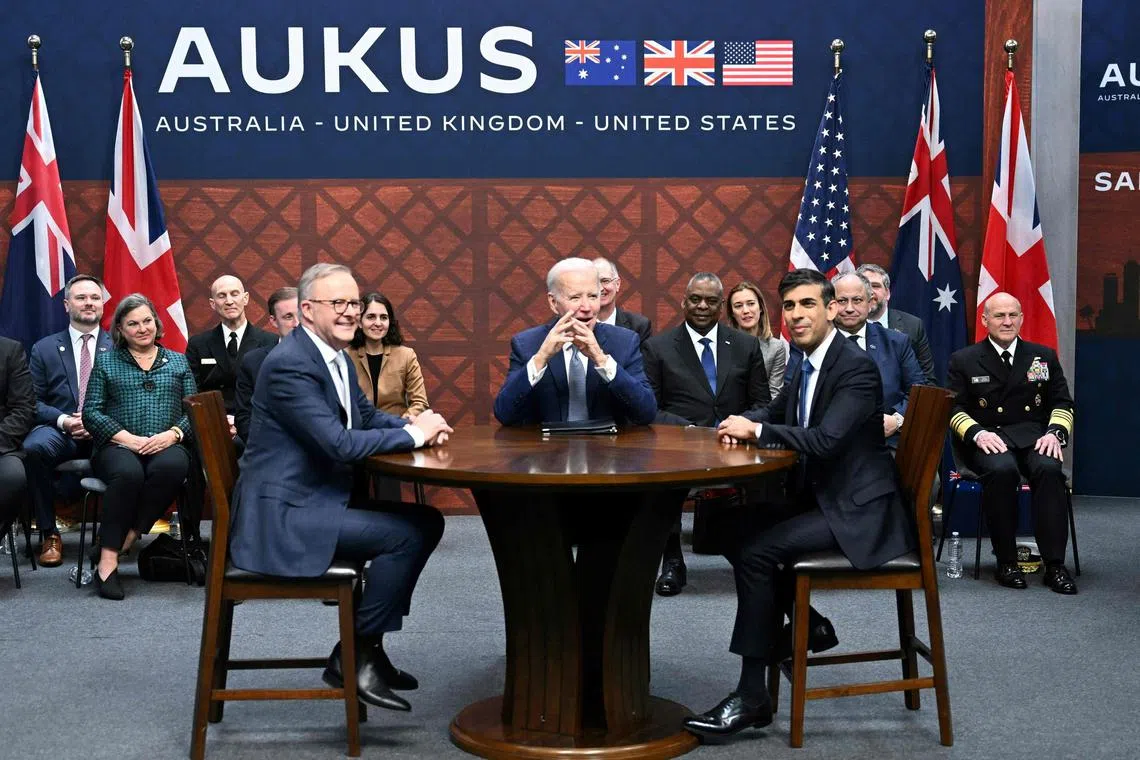China denounces Aukus submarine deal in new broadside
Sign up now: Get ST's newsletters delivered to your inbox

US President Joe Biden, flanked by Australian Prime Minister Anthony Albanese (left) and British Prime Minister Rishi Sunak, during the Aukus summit in California on March 13, 2023.
PHOTO: AFP
Follow topic:
BEIJING – China lambasted the latest steps taken by Britain and the United States to supply conventionally armed but nuclear-powered submarines to Australia,
Mr Li Song, Beijing’s ambassador to the International Atomic Energy Agency (IAEA), said the Aukus agreement will undercut global efforts to stop the spread of weapons-grade nuclear fuel and open new proliferation pathways for other countries.
Iran and South Korea are among nations that have also explored obtaining nuclear-powered submarines, and Brazil has already committed to building a fleet.
“If the Aukus partners insist on taking their own course, it is inevitable that some other countries will follow suit, which may eventually lead to the collapse of the international nuclear non-proliferation regime,” China wrote in the statement circulated in Vienna late on Tuesday.
China published its criticism during President Xi Jinping’s three-day visit to Moscow,
Earlier in March, the leaders of Australia, Britain and the US unveiled their ambitious multibillion-dollar Aukus plan
The diplomatic note accused the Aukus partners of “coercing” the IAEA into signing off on the deal. A legal loophole in international non-proliferation agreements lets the IAEA exempt inspections of weapons-grade uranium used to power vessels while at sea, provided the material can later be accounted for.
“This process involves serious legal and complex technical matters,” IAEA director-general Rafael Mariano Grossi said earlier in March. “Ultimately, the agency must ensure that no proliferation risks will emanate from this project.” Bloomberg

